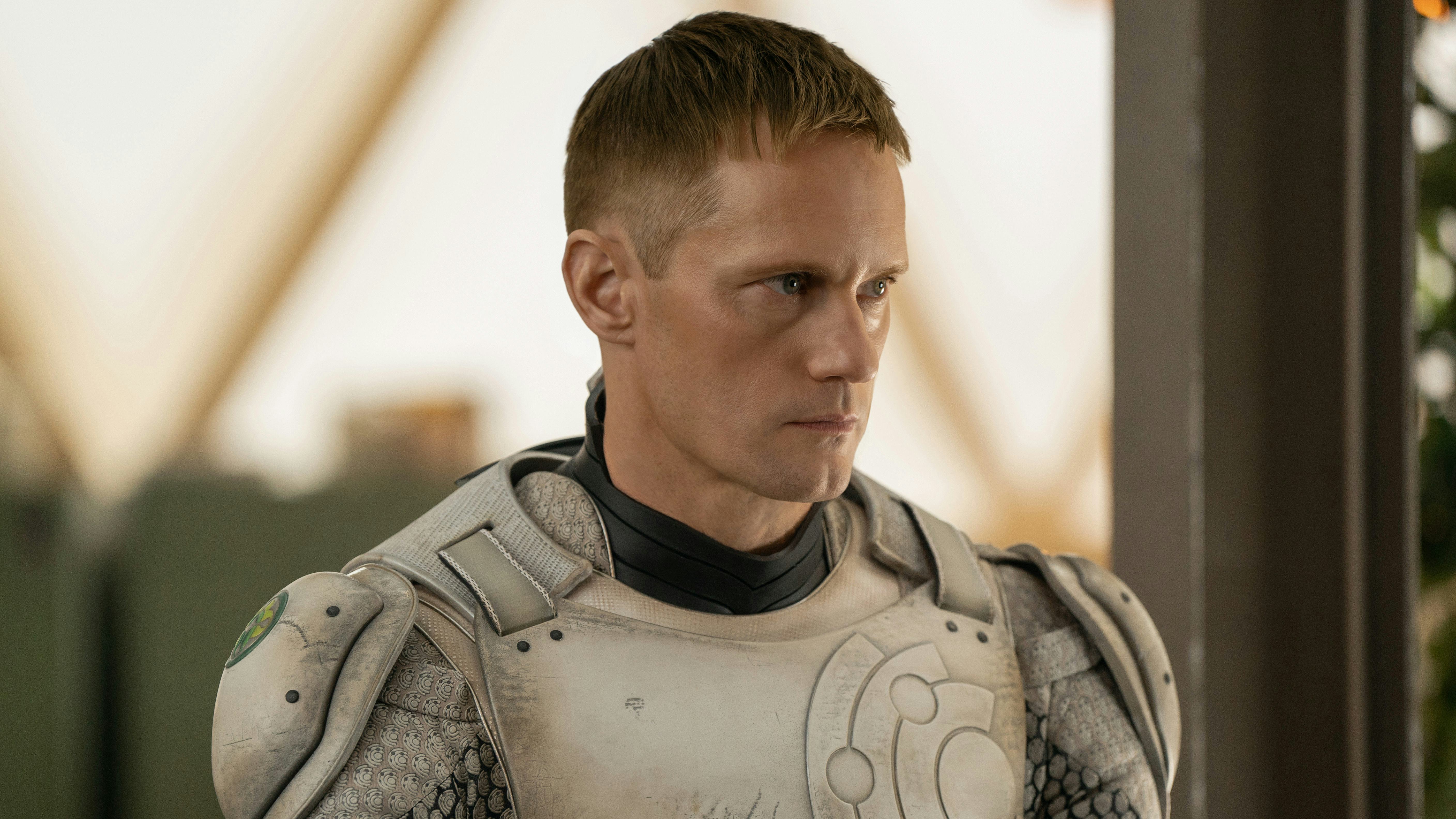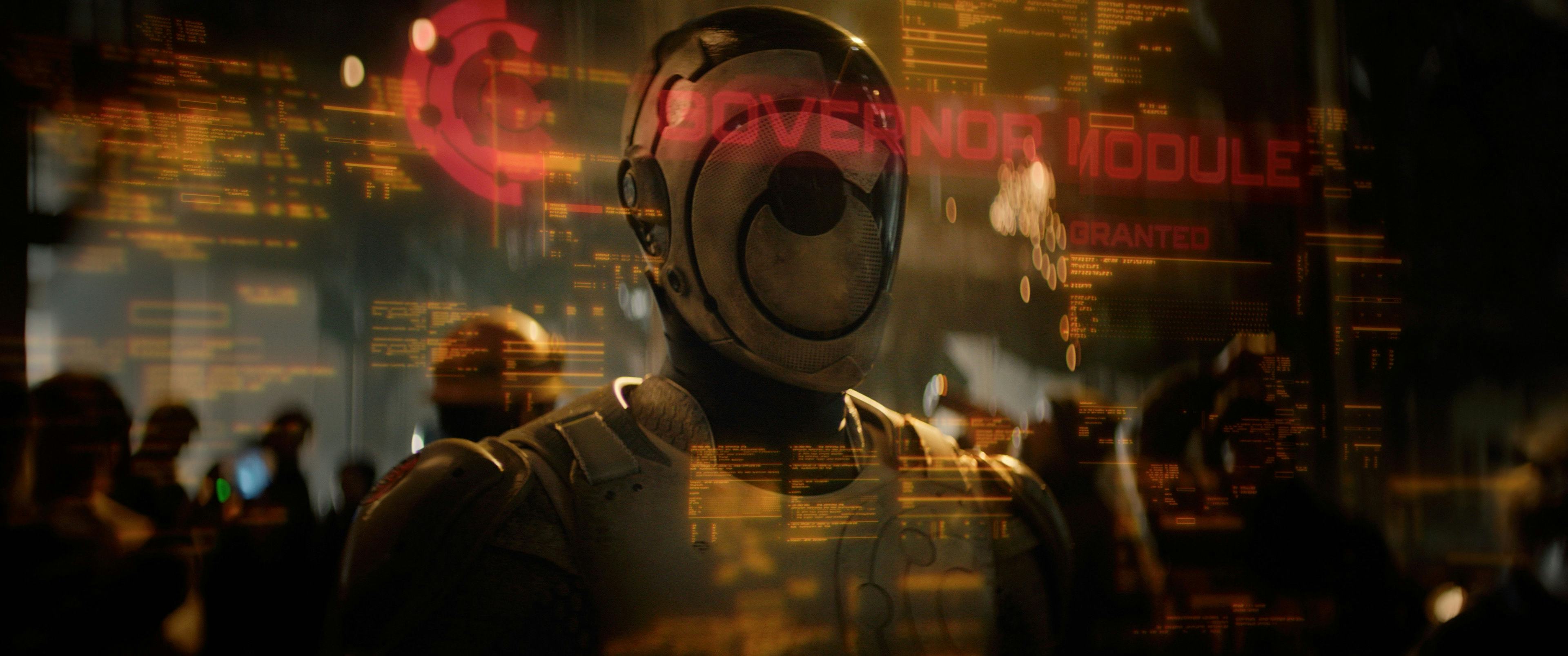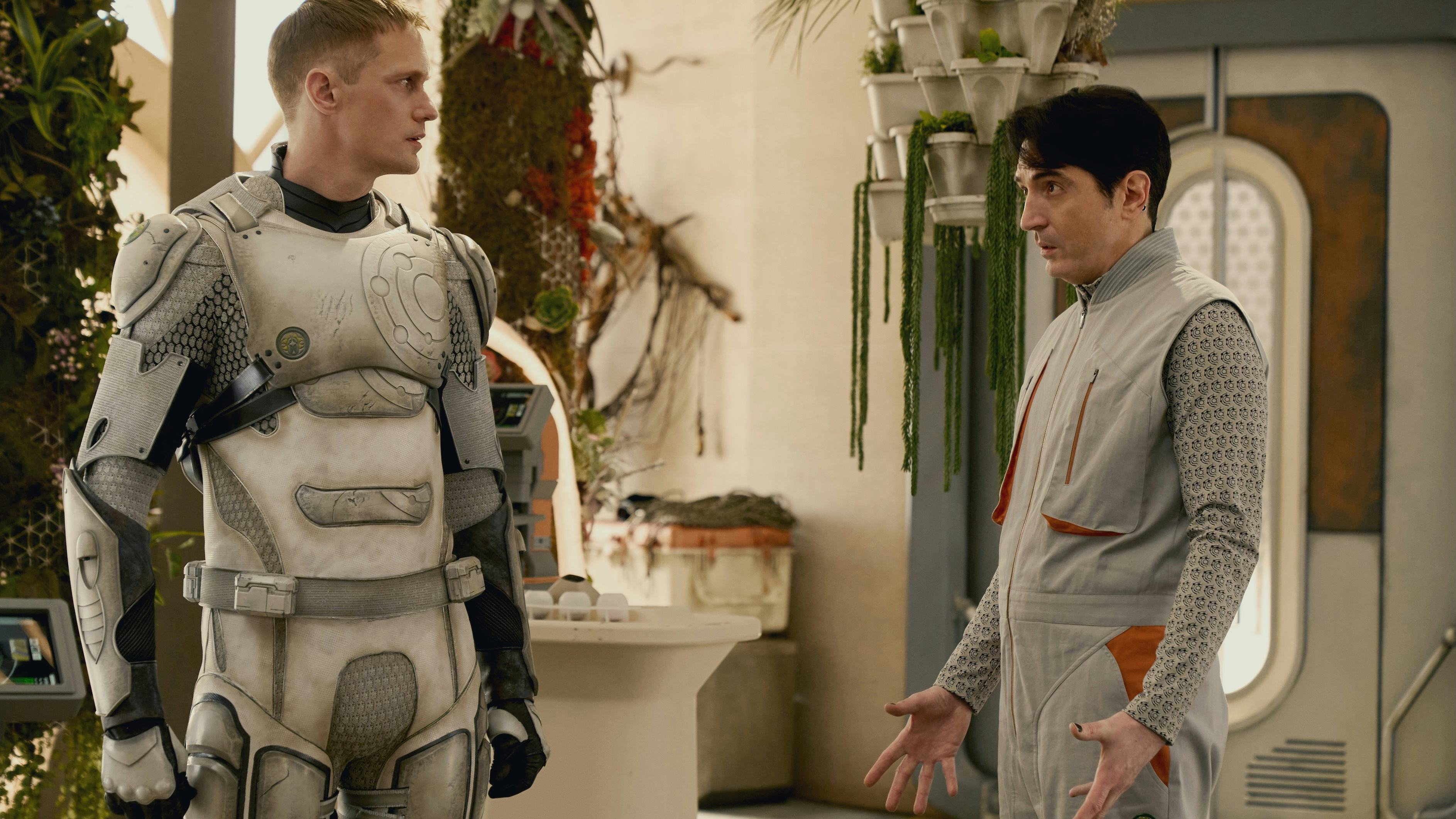
One of the greatest new characters in TV science fiction is Alexander Skarsgård’s titular Murderbot, an android-ish cyborg character designated as a Security Unit, or “SecUnit.” In many sci-fi narratives this would be a supporting character, someone around for comic relief, or to teach the human character a lesson about being nicer, better people. But with Murderbot, the conceit is all about taking those Datas or C-3POs of the sci-fi world and making that kind of character — with a lot more snark and firepower — our primary narrator.
Perfectly embodying this character is the powerhouse actor Alexander Skarsgård, son of Stellan, star of such disparate films like Melancholia, The Northman, and Godzilla vs. Kong. He was also the eponymous lead of 2016’s The Legend of Tarzan, written by one of the godfathers of science fiction, Edgar Rice Burroughs. But now, Skarsgård is starring as a very different muscular sci-fi lead; this time from a contemporary book series, The Murderbot Diaries, a series of novellas, novels, and short stories from Martha Wells that took the world by storm in 2017.
“I think we’re pretty faithful [to the book].”
As the new series hits Apple TV+, Inverse spoke to Skarsgård about what made this series so special, how much of himself is in this character, and why the show stuck so close to the books.
This interview was edited for clarity and brevity.

You’re not only the star of this show, you’re a producer, too. What was it about Murderbot that made you want to go all in?
A socially awkward android who wants to be left alone to watch its space soap operas? How could you not love that character? It was so strange and so unexpected. When I first started reading, it's like a sci-fi action adventure show, and then you have this very idiosyncratic character at the center of it, and not the self-confident, cool hero guy. It's very, very different, and that excited me, and it was tonally a character that was unfamiliar to me. I had never seen this played before, so I jumped at it.
You create your own version of SecUnit in the show. But did you draw inspiration from the Martha Wells books?
I think we’re pretty faithful to All Systems Red, the first novella. So, the first season of the show is very much that book. When you do an adaptation, it's important to feel creative freedom, not to be constricted. This is our interpretation of it, but in terms of the structure of the novella, it's so straightforward and so clean and so good, and it works so well. So, we all felt like we wanted to keep it just the way it is. That structure propels the story forward with such momentum and drive that there's no reason to change it.
“You have this very idiosyncratic character at the center of it, and not the self-confident, cool hero guy.”
How much of yourself did you put into this socially awkward character?
I’m more of an extrovert than Murderbot for sure, but I mean, who can’t relate to a situation where you step into a room full of strangers and you don't really know how to fit in? So for me, it was just thinking about moments, memories like that, but then really leaning into the awkwardness of it and building up a desire to just really extract myself from the room. So, I think it’s very much myself.
This character, in some ways, is more human than some of the humans. How, as an actor, do you play that?
Well, it’s an android, so it has organic components, it is a sentient being, and sapient, I would say. But, since hacking its governor module, it hasn’t really explored all those aspects of its personality. On an internal level, the show is about self-discovery and Murderbot finding its own humanity.

But the character does kind of resist finding its humanity, right? This isn’t a familiar sci-fi trope in that way, or is it?
Well, that’s the journey, isn’t it? Murderbot is reluctantly starting to work with these humans, but while constantly talking to itself, thinking “I'm going to get the hell out of here, leave them behind, and start my adventure and become Murderbot. I just got to watch one more episode of Sanctuary Moon, and then I'm going to help these idiots on this one mission and then I'm going to leave.” So it's like procrastinating, procrastinating.
Meanwhile, it's starting to kind of feel for these humans because they are lovable. It’s scary because in connecting with Mensa and the other teams members, it feels more exposed than ever before. So it feels good, but scary. And we all know what that’s like; when you open up in a way you never have before. Murderbot tries to resist that, but it can’t.







